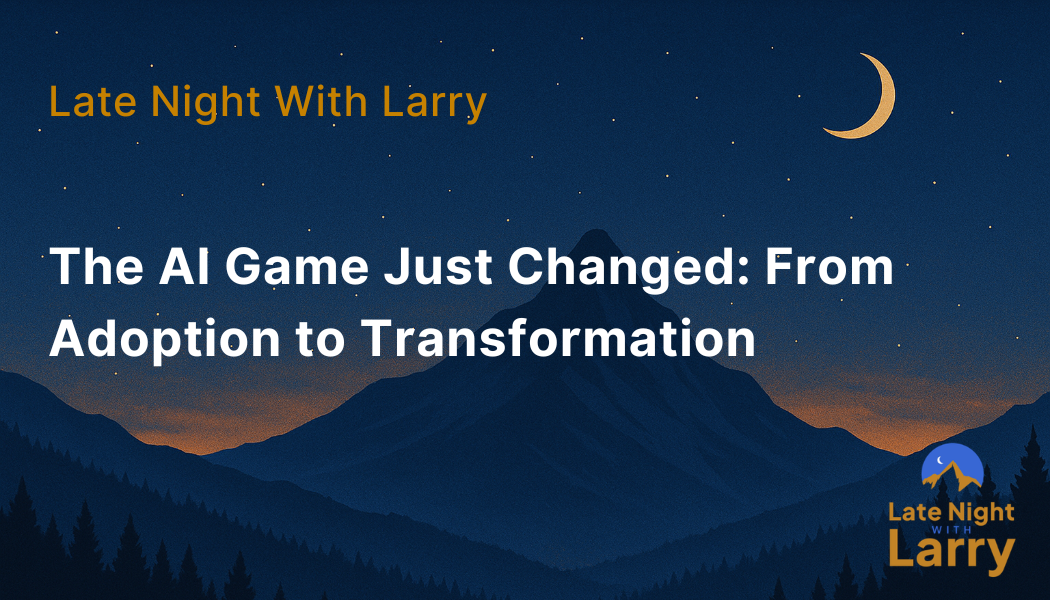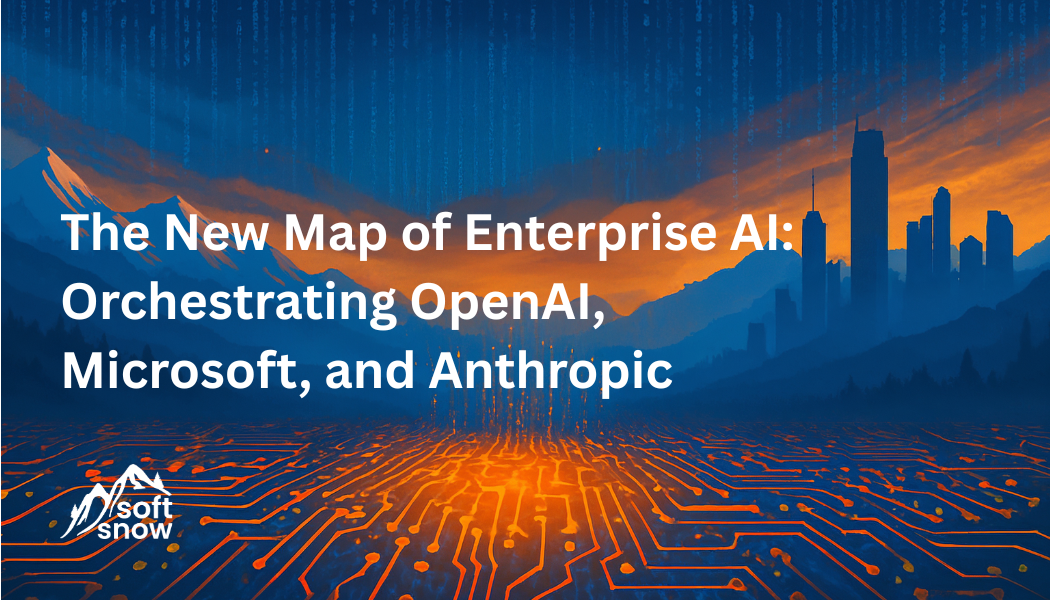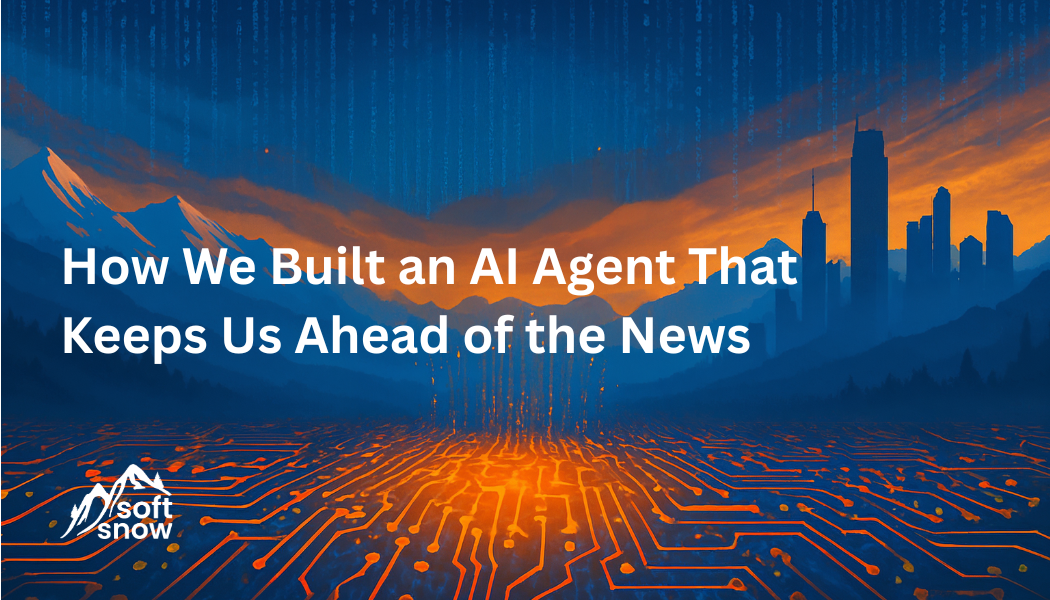.png)
This week’s developments focus on making sophisticated AI capabilities more accessible, efficient, and immediately valuable for users across the spectrum.
________________________
ServiceNow's Big Bet on Simplicity: Why Integration Beats Innovation
ServiceNow has unveiled its Zurich release, introducing Vibe Coding, AI-powered security consoles, and autonomous workflow automation to accelerate enterprise AI adoption. The update builds on its Xanadu platform, first launched in 2024, and is aimed at helping companies move from AI pilots to production-scale deployment.
The centerpiece, Vibe Coding, lets users build enterprise applications through natural language prompts. ServiceNow’s new Build Agent not only generates apps but also handles testing, debugging, compliance, and governance automatically, turning weeks of development into minutes. Unlike low-code tools, Build Agent embeds audit trails and enterprise standards by default, leveraging ServiceNow’s decades of workflow data for business context.
Alongside app creation, ServiceNow launched two new security consoles: the Machine Identity Console, which monitors API connections and integration risks, and the Vault Console, which discovers and protects sensitive data across workflows. These features extend the company’s AI Control Tower to address governance at AI scale, treating AI agents as a new type of digital identity.
By consolidating app development, workflow automation, and AI governance, ServiceNow positions itself directly against Microsoft and Salesforce. The company is betting enterprises will prefer platform simplicity over managing fragmented best-of-breed tools—potentially tipping the market toward integrated AI ecosystems.
SoftSnow Take:
ServiceNow’s Zurich release shows how quickly enterprise AI is moving from pilots to production. By combining Vibe Coding, security consoles, and workflow automation, the platform lowers the barriers that have kept many organizations stuck in experimentation. What once took weeks of development can now be done in minutes—with compliance and governance built in from the start.
The real story is simplicity. Instead of stitching together fragmented best-of-breed tools, enterprises now have the option to scale faster through a unified platform. This shift reduces friction, cuts risk, and accelerates the time-to-value that executives are under pressure to prove.
At SoftSnow, we see this as a clear signal for leaders: momentum favors those who act. Integrated platforms can unlock the scale and speed businesses need, but success requires strategy. Our role is helping organizations translate these capabilities into outcomes—moving AI from pilot mode to a driver of competitive advantage.
________________________
Microsoft's Pricing Pivot Reveals the Real AI Adoption Challenge
Microsoft is reshaping its AI pricing strategy by bundling Copilot for Sales, Service, and Finance into the standard Microsoft 365 Copilot subscription at no additional cost, effective October. Previously, businesses paid $30 per user per month for Copilot, with an extra $20 per user for each of the specialized Copilots, bringing costs up to $50 for organizations needing multiple tools. Now, all three specialized Copilots will be included in the $30 plan, simplifying access and reducing overall expenses.
The move is framed as part of Microsoft’s broader strategy to streamline its AI offerings while expanding agent-based capabilities across its productivity suite. At Microsoft Ignite, the company is expected to unveil Agent 365, a new management layer for AI agents focused on security, compliance, and orchestration within enterprise workflows.
In a surprising twist, Microsoft is also incorporating Anthropic’s AI models into parts of Microsoft 365. According to The Information, Anthropic’s Claude Sonnet 4 outperformed OpenAI’s GPT-5 in tasks within Excel and PowerPoint, prompting Microsoft to license models via AWS despite its deep ties to OpenAI. This signals both competitive dynamics in the AI model space and Microsoft’s pragmatic approach to integrating the best-performing models for its enterprise users.
SoftSnow Take:
Microsoft’s bundling move sends a clear signal: AI at work is moving from optional add-ons to baseline expectations. By collapsing Sales, Service, and Finance Copilots into the core offering, Microsoft is lowering barriers to adoption and pushing enterprises toward broader deployment at scale.
The pricing shift also underscores a strategic truth we’ve seen across industries: simplification accelerates adoption. Enterprises are far more likely to embrace AI when it’s built into existing tools at predictable costs, rather than fragmented into niche upgrades.
But perhaps the bigger signal is Microsoft’s willingness to diversify beyond OpenAI. Bringing Anthropic into Microsoft 365, even through AWS, shows that the competitive edge won’t come from loyalty to one model provider, but from curating the right mix of AI models for the right contexts.
At SoftSnow, we see this as a pivotal moment. Leaders must prepare for a future where enterprise AI isn’t a single vendor bet, it’s a multi-model, multi-agent ecosystem. The organizations that thrive will be those who evaluate AI not by brand, but by performance, integration, and the value it delivers to people doing the work.
________________________
The CFO's AI Moment: Why Finance Leaders Can't Afford to Wait
Generative AI is beginning to reshape the finance function, with CFOs exploring ways to automate routine tasks and free up time for strategic priorities. While AI won’t replace CFOs, experts suggest it can handle time-consuming work such as drafting reports, investor communications, and strategic summaries—giving finance leaders more capacity to focus on advising the business during uncertain economic conditions.
Emerging use cases include treasury functions like cash, revenue, and liquidity forecasting, as well as contract automation and investment analysis. However, limitations remain in forecasting due to the mathematical constraints of large language models (LLMs). Adoption is growing nonetheless: Deloitte reports that 19% of finance organizations have already deployed generative AI in some capacity.
While returns so far have been 8 points below expectations, momentum is building. Nearly half (46%) of CFOs in Deloitte’s late 2024 survey expect to increase generative AI spending in the next 12 months. The technology is viewed as a way to reduce costs, enable self-service, and allow staff to focus on higher-value tasks. Experts caution that finance leaders who delay experimentation risk falling behind more agile competitors, particularly as the next generation of finance professionals enters the workforce already fluent in AI tools.
SoftSnow Take:
Finance is often seen as the last frontier for digital transformation, but this article highlights a shift: CFOs are moving from cautious observers to active experimenters in AI.
The lesson is clear—AI’s role in finance isn’t about replacing judgment; it’s about creating leverage. Drafting reports, managing liquidity, and streamlining analysis are the kinds of repetitive but critical processes where AI can unlock capacity. The real opportunity lies in repositioning finance from a reporting function to a strategic partner for the business.
At SoftSnow, we see a broader truth here: waiting is no longer a strategy. The organizations that hesitate risk being outpaced not just by technology, but by talent. As younger professionals bring AI fluency into the workforce, forward-looking CFOs will need to design finance roles that blend human expertise with AI collaboration.
The future of finance isn’t about humans versus AI—it’s about finance leaders reimagining what success looks like when both work together. Those who act now will not only gain efficiency but also elevate the influence of finance in shaping business strategy.
________________________
These rapid developments demonstrate both the urgency and opportunity of this moment. The good news? Meaningful AI implementation doesn't require enterprise-scale resources or massive infrastructure investments.
The most successful AI transformations aren't about chasing every new capability; they're about identifying where technology can solve real business problems and empower your existing teams. Whether you're building infrastructure, creating new user experiences, or seeking competitive advantages, the key is approaching AI with purpose and practicality.
At SoftSnow, we understand that successful AI adoption isn't just about acquiring technology: it's about thoughtful integration that enhances human potential rather than replacing it, allowing teams to work smarter and achieve more while staying true to core business objectives. Contact us today to learn more.





